Hamilton Crescent
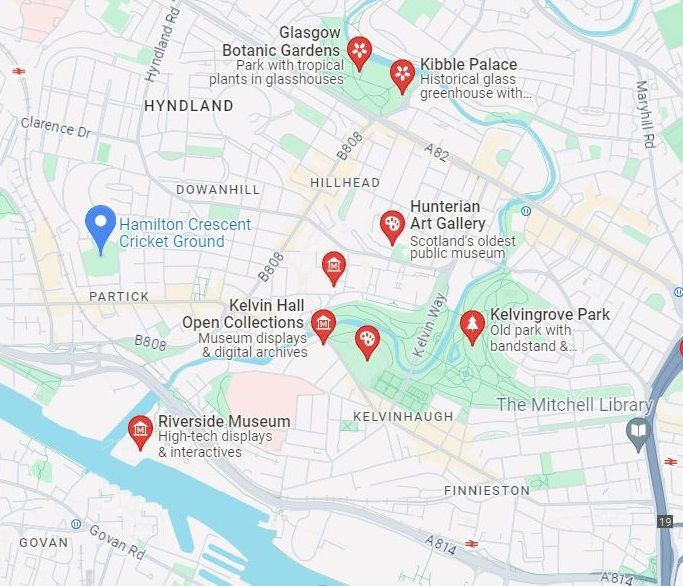
The World's first international, not simply the first on Scottish soil or between Scots and English, was played in Glasgow on St. Andrew's Day, 30th November, in 1872. But it was not at any venue we might today recognise as connected to the game. It took place at Hamilton Crescent just off the Dumbarton Road in Partick, the ground then and now of the West of Scotland Cricket Club. And just to confuse matters Hamilton Crescent no longer exists, the name having been changed to Fortrose St..
However, the ground continues, a Scottish, indeed global, historical pearl diminished in area by about a fifth but still needing a heavy six into the pavilion. In fact in 1872 it seemed to have been chosen with some consideration to be the place of this first official encounter. The home captain, Robert Gardner, had been offered at no cost the Glasgow Academicals ground on the other side of the River Clyde but chose to pay for the use of Hamilton and not without reason. He had the smaller, lighter eleven and also a plan, where a shorter, narrower pitch would be advantageous.
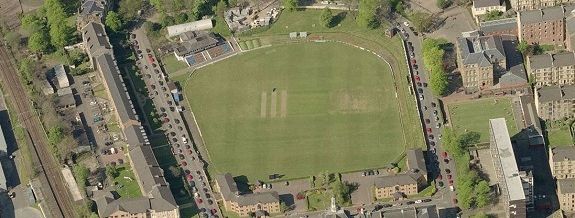
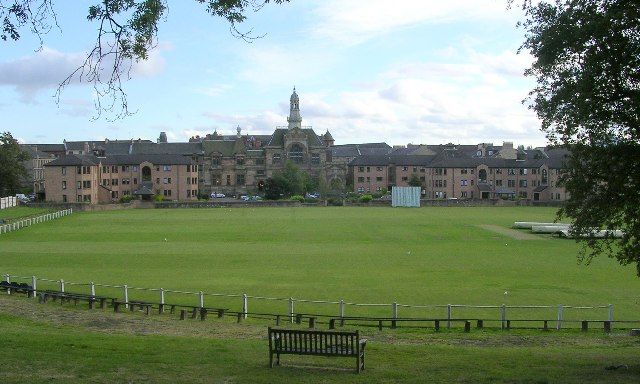
The game would be watched by a crowd of about 4,000, so five or so deep. We know that the pitch was laid across the field. The spires of Glasgow's churches, then and now, are in the distance in contemporary illustrations of the events of the day. The English took up a public-school generated 1-2-7 formation, three backs and seven forwards. The Scots came with a new shape for the day, 2-2-6; two full-backs, two half-backs forming a box in front of Gardner in goal and a 0-0 draw was the result, albeit after a reportedly exciting ninety-minutes.
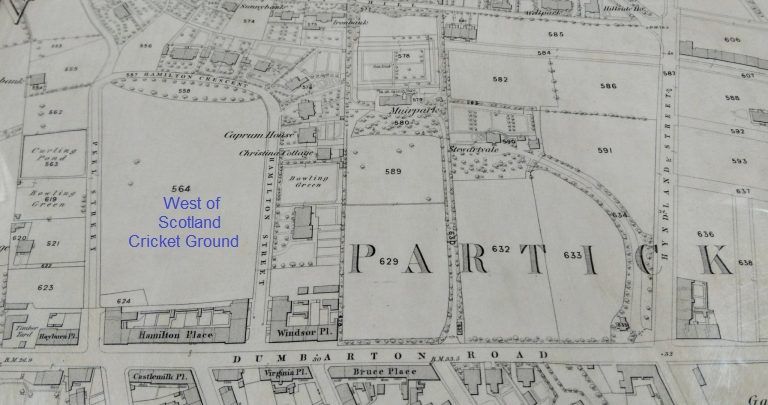
Thus it was that on an otherwise dull November day just a fraction over one hundred and fifty years ago three things of significance took place or were initiated. The first, the most obvious, is that not inter-nation sport but international association football was invented. A similar Scotland-England match had taken place a year earlier in Edinburgh but to rugby rules. The second was that the pitch had been in a way "doctored". And the third was that again for the first time in the association game rather than pure individualism or at best "combination", general working together, now deliberately planned defence was employed.
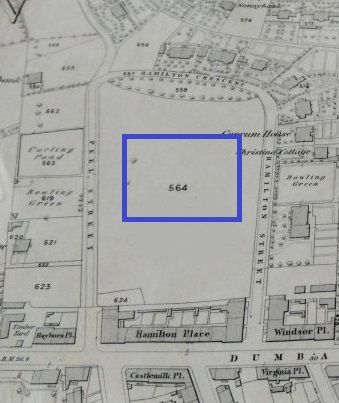
However, the success of the Hamilton Crescent encounter was, if anything, greater off the field than on. Football and rugby had been following similar developmental paths but with the round-ball game the tortoise. Hamilton Crescent changed all that. Within weeks clubs were being formed not just in and around Glasgow but also in other parts of the West of Scotland, notably in the mainly working-class towns and villages of West Dunbartonshire. Within months the Scottish Football Association (SFA) came into being and with it the Scottish Cup. Within three years one of the proletarian teams, Renton, would compete in only the second Scottish Cup Final ever to be played. Hamilton Crescent itself would host the 1876 Scottish Cup Final. Within five seasons another working-class team, Vale of Leven, would win the same cup, the first of three in succession. Hamilton Crescent would be a venue. Four more internationals were played there with in 1876 crowds of 16,000 and 17,000 said to have packed in to watch defeats of England and then Wales. Where they all fitted even with a smallish pitch is hard to see. However, it was probably lack of capacity, or more precisely banked capacity, that after five seasons would see the move of all club and national encounters to the first Hampden Park and Hamilton Crescent's return to equally keen but less rumbustious pursuits.